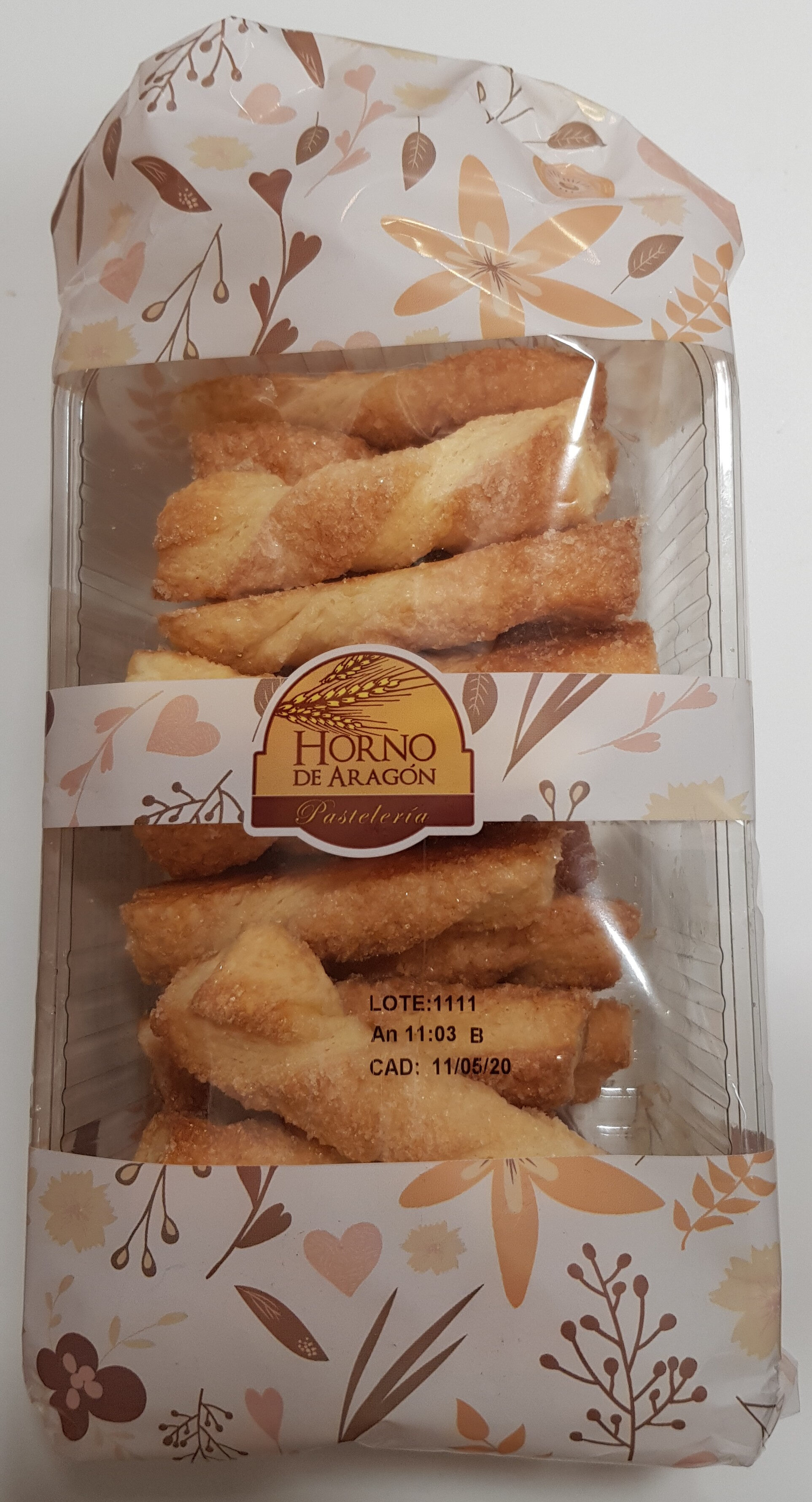Lazos - Horno de Aragón - 250 g
This product page is not complete. You can help to complete it by editing it and adding more data from the photos we have, or by taking more photos using the app for Android or iPhone/iPad. Thank you!
×
Barcode: 8413760009565 (EAN / EAN-13)
Quantity: 250 g
Brands: Horno de Aragón
Categories: Snacks, Desserts, Sweet snacks, Biscuits and cakes
Manufacturing or processing places: Zaragoza, España
Traceability code: ES 20.26317/Z CE
Countries where sold: Spain
Matching with your preferences
Environment
Packaging
Transportation
Threatened species
Report a problem
Data sources
Product added on by elcoco
Last edit of product page on by alexrios.
Product page also edited by elcoco.03e94f4c5a2d63dccb5ccea3338e2b59, kiliweb, musarana, openfoodfacts-contributors, roboto-app, yuka.YS9BK1BxQTRnT0k0dnNJYTBRdlJ4ZlpLM2EyNVJHMktDUFE0SVE9PQ.
If the data is incomplete or incorrect, you can complete or correct it by editing this page.










